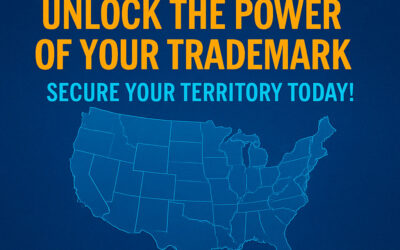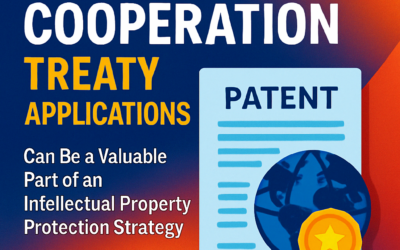A career as a social media influencer is an exciting one, and one that you wouldn’t have been able to find twenty years ago. Social media influencers are savvy, self-motivated content creators on one or more social media platforms who have, through their content, become an expert on a particular topic of interest. Whether it’s booktubers, beauty bloggers, or big name fans of a particular piece of media, influencers become an authority on the thing they’re passionate about.
Though there is sometimes monetization from the platform itself, such as from YouTube, most money that social media influencers receive comes from sponsors. To get the attention of those sponsors, however, they have to truly stand out from everyone else talking about their particular subject. So if someone is stealing your brand or taking credit for your content, it could be a disaster for your livelihood. Here are a few ways to protect your content as a social media influencer.
Are Your IP Rights Automatic? Why You Should Register Anyway
You may have heard that your copyright and trademarks are automatic as soon as you publish the work. This may be true in theory, but in practice, it’s not much use to you and can be a disastrous legal strategy that causes you to lose money and maybe your business too.
A common law copyright is granted as soon as you publish your content, but this copyright is incredibly weak. You will be unable to sue for copyright infringement without a federal copyright registration. In order to receive compensation at all, you will have to prove that actual financial damages were caused if you do not have a federal copyright registration. Proving actual damages can be exceedingly difficult and often nearly impossible.
Similarly, in the case of common law trademarks, you have to contact the person who infringes on your trademark. Then it only counts as infringement if they continue to do so. In some cases, courts may even decide that both parties have regional rights to a particular trademark. This could be a disaster for an influencer, whose business is their brand. Court cases or any action taken to defend your trademark can be costly, with little guarantee that you will receive compensation for the trademark infringement.
The absolute best way to protect your business and your IP is to federally register your trademarks and copyrights. With a registered copyright, you can recover statutory damages without having to prove actual financial damages. With a registered trademark, you can enforce your trademark from the get-go, not just after giving notice. It also reduces the number of elements that need to be proven in court which can greatly reduce trial costs.
What Content Can You Protect As a Social Media Influencer?
The first thing you need to protect as a social media influencer is not your videos, posts, or photos. It’s your brand. The handle, domain, or aliases you use across social media platforms, your logo, anything that helps your audience to recognize your content. You can even trademark hashtags that you use exclusively. Anything related to your brand can and should be trademarked to protect yourself from being confused with your competition — whether unintentionally or through infringement.
Once you’ve done so, the next thing to do is to protect your content. Your videos, writing, photos, popular catchphrases, or anything that makes your content unique should have a registered copyright. In some cases, copyrighting your content may even drive someone towards your work. If they come across a photo or a video copyrighted to you, they may be more likely to check out the rest of your work.
IP Policies on Social Media
Most major social media platforms have their own Trademark and Copyright policies that allow them to take action if your IP is infringed upon. These policies lay out how to know your rights to your IP on those social media accounts, how to report IP infringement, and what the platform is able to do. They may be able to take down any content that infringes upon your copyright or, in cases of repeat offenders, suspend the account.
Don’t assume that one platform’s intellectual property policy is the same as another’s. Twitter has copyright and trademark policies, while Tiktok has their own Intellectual Property Policy. Make sure that you review the IP policies of any social media platform that you use so that you know what steps to take on each one.
As a social media influencer, your brand and your content is your business. When you need to protect these things, Garcia-Zamor can help. Contact us today to learn more or to schedule a consultation.







